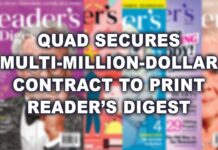 Fraud is everywhere and you need to be aware of it. If you have an e–mail address,
Fraud is everywhere and you need to be aware of it. If you have an e–mail address,
then you’ve no doubt been assaulted with a particular spin on an old con. It’s
an old swindle that’s been modernized thanks to the Internet. The perpetrators
now have an entire planet in which they can troll for unsuspecting dupes.
The approach on the Internet takes greed and couples it with
misdirection, and you have a recipe for fraud. The e-mail arrives from an
individual with the subject line indicating "Private Business proposal / Urgent
reply!". When you open the e-mail, it is the most atrociously misspelled letter
with some tale of woe.
In a recent version that I received, the good Samaritan is a
widow with three children, who directs you to her "profile" through an internet
link. The link takes you to a page that looks like a resume for the widow. The
story in the e-mail goes on to say that the widow’s husband used to be some
high-ranking official with some African country. He died and left a safe
deposit box loaded with cash which the widow was unaware of, and due to some
reason she can’t get access to the money, but with your help can have it
directed out of the country to your bank account.
The amount of money is generally in the tens of millions of
dollars (why not – if you’re going to fish you might as well use big bait). For
your assistance, that is for the use of your banking information with which the
widow will transfer these funds out of the country, she will pay you a
percentage of the loot, usually amounting to several millions of dollars.
Sounds like a great deal for you. Just give her your banking
information, take deposit of tens of millions of dollars which were "stolen" by
the widow’s deceased husband, and collect a fee of millions of dollars for assisting
the widow to get the money out of her country. Sounds easy. Do yourself a
favour: delete the e-mail now.
If you allow yourself to get into this any deeper, apart
from the danger in divulging your banking information (even if it’s only a dupe
account to be used for this transaction only), there’s the issue of "good
faith" money.
Somewhere along the line you’ll be asked for your show of
bona fides, at which time you pony up or the con is over. If you send a nickel,
it’s too much.
In the hopes of making a quick financial killing, you may
embroil yourself in identity theft of which you may be the target, or consider
that you may be aiding in a criminal enterprise the intent of which is
money-laundering or worse, or that you may be participating in a criminal
enterprise in a foreign jurisdiction, not to mention the various local laws
that you may be contravening.
It sounds so low-tech that it’s a wonder how anyone could
fall for it, but people do. These cons take on a life of their own. They
circulate, then disappear for a while, then circulate again. They are generally
more successful during times of economic downturn, when desperate people do
increasingly desperate things to save what they feel is slipping away.
Another variation combines two cons: the Nigerian letter
scam and the fake cashier’s cheque scam, and puts them together for a near
perfect rip-off. The e-mail message or letter is from "Lottery Resources
Management and Payment Verification Center." It is very official looking. And
there is good news. There’s been a sweepstakes and you have won.
The catch? You have to pay taxes and clearance charges of
$4,975.00.
If you are awarded a prize, you don’t have to pay anything
for it. If someone says you have to pay for a prize, it’s generally a scam.
Then there’s a cashier’s cheque to cover the full cost of the taxes and fees,
and the cheque looks authentic. The value is imprinted in the cheque, and the
bank’s location and phone number clearly listed.
One telltale sign that this is a scam is that there is a
telephone number for the bank. Banks don’t list their phone numbers on cheques
to ensure that their telephone number is independently acquired, i.e. through a
telephone book or directly from directory assistance. The reason the number is
there is so the victims will contact the perpetrators of the scam rather than
the bank itself.
The fake is so good it even takes the bank a while to track
it down. But it is a fake, and it is a scam. Somewhere along the line, the mark
is asked to deliver up "good faith" money, to pay real money in order to
receive the big payoff which never comes.
All these scams are old wine, new bottle. At some point the
mark is asked to wire money to some unknown person. If that happens you can be
certain it’s a scam.
Don’t fall prey to them. If it smells like manure, and looks
like manure, then chances are it is manure – don’t step into it!
Sid Karmazyn is a Chartered Accountant, author and speaker,
who lives and works in York Region. Your comments are welcomed.
T: 905-771-3813 F: 905-771-3810






good dating site: freetalk45 – online dating simulator
prednisone 10mg prices: [Link deleted]prednisone otc price